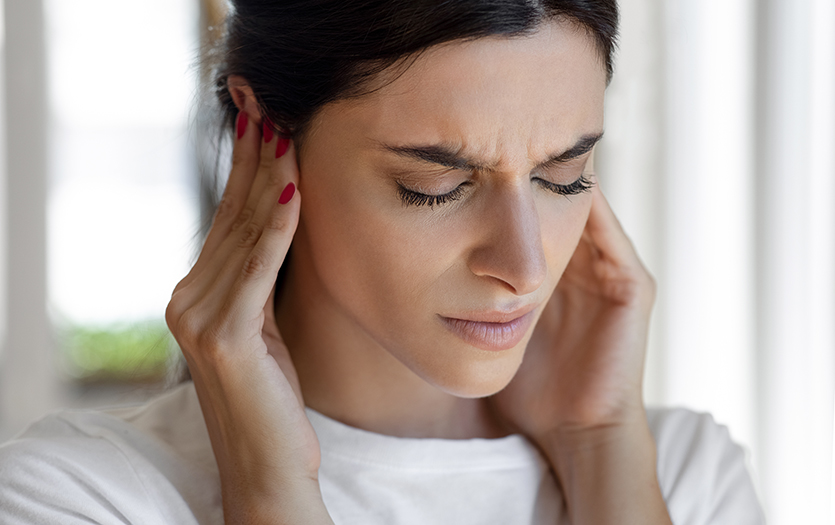
It’s not uncommon for people to hear a roar, hiss, tinkle or buzz in their ears for a variety of reasons. However, when the sounds don’t improve, it could be tinnitus, a condition worth investigating.
Understanding tinnitus
Tinnitus is usually caused by long-term exposure to loud noise, which damages the nerves in the inner ear. It can occur with all types of hearing loss and be a symptom of almost any ear disorder.
There are two types of tinnitus: pulsatile and nonpulsatile.
Pulsatile tinnitus is often caused by sounds created by muscle movements near the ear, changes in the ear canal or blood flow problems in the face or neck. People with pulsatile tinnitus may also hear sounds like their pulse or the contractions of their muscles.
Nonpulsatile tinnitus is caused by problems in the nerves involved with hearing and may result in hearing sounds in one or both ears. Sometimes this type of tinnitus is described as coming from “inside the head.”
Other possible causes of tinnitus include:
- Ear infections
- Earwax buildup
- Medicines, especially antibiotics or large amounts of aspirin
- Medical conditions
- Injuries, such as whiplash or a direct hit to the ear or head
- Blood flow problems, including carotid atherosclerosis, arteriovenous (AV) malformations and high blood pressure
- Nerve problems, such as multiple sclerosis or migraine headache
Tinnitus is most common in people older than age 40 and seems to impact men more than women.
Diagnosing and treating tinnitus
Most of the time, tinnitus comes and goes and doesn’t require medical treatment. In more persistent cases, doctors ask key questions about symptoms to diagnose and find the cause of tinnitus and may perform or order tests such as hearing tests, CT scans or MRIs.
Although there is no cure for tinnitus, there are methods of managing it that can ease its effects. Some strategies for coping with tinnitus that people have had success with are:
- Using background noise to mask the sounds
- Practicing relaxation techniques such as meditation or yoga (stress and fatigue seem to make tinnitus worse)
- Limiting exposure to loud noises
- Wearing protective earplugs or earmuffs if loud noises cannot be avoided
- Limiting alcohol and caffeine
- Avoiding tobacco
- Exercising regularly to improve blood flow to the structures of the ear
We’re here to help
If you are experiencing disruptive tinnitus that does not seem to be getting better on its own, help is just a phone call away. See your primary care provider or schedule an appointment with PPG – Audiology for assistance.
Copyrighted material adapted with permission from Healthwise, Incorporated. This information does not replace the advice of a doctor.



